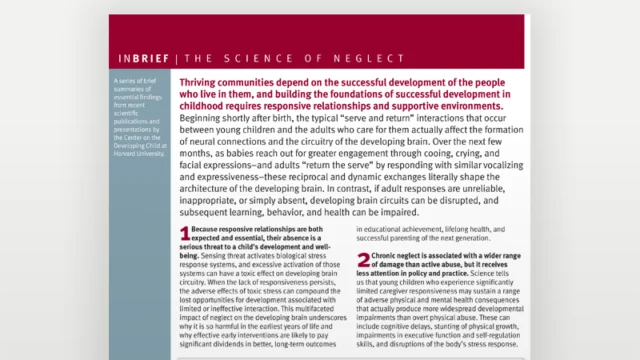InBrief: The Science of Neglect

This page has been translated.
Thriving communities depend on the successful development of the people who live in them, and building the foundations of successful development in childhood requires responsive relationships and supportive environments. Beginning shortly after birth, the typical “serve and return” interactions that occur between young children and the adults who care for them actually affect the formation of neural connections and the circuitry of the developing brain. Over the next few months, as babies reach out for greater engagement through cooing, crying, and facial expressions–and adults “return the serve” by responding with similar vocalizing and expressiveness–these reciprocal and dynamic exchanges literally shape the architecture of the developing brain. In contrast, if adult responses are unreliable, inappropriate, or simply absent, developing brain circuits can be disrupted, and subsequent learning, behavior, and health can be impaired.